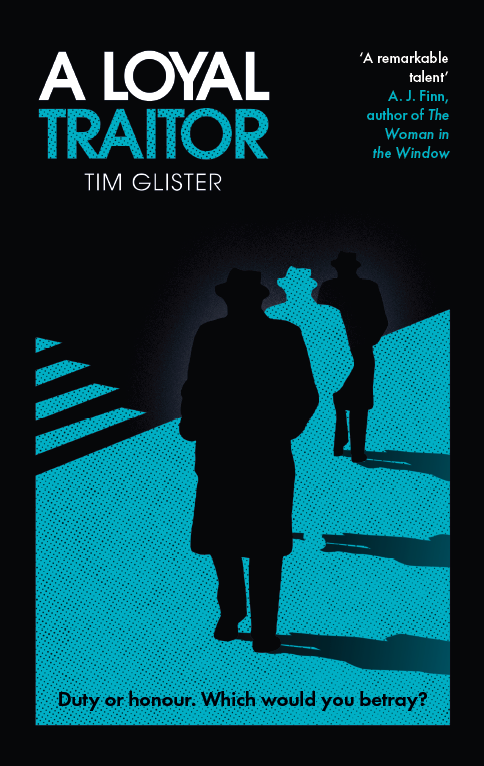 A brilliant non-fiction author once told me that the role of great biography is to use an individual’s life as a window into a whole period of time or moment in history. Their personal stories, experiences, hopes and challenges should illuminate the world of the past and make it resonate with the present.
A brilliant non-fiction author once told me that the role of great biography is to use an individual’s life as a window into a whole period of time or moment in history. Their personal stories, experiences, hopes and challenges should illuminate the world of the past and make it resonate with the present.
I believe the same is true of historical fiction.
It can be tempting to set a novel - especially a thriller - in the deep or recent past simply to escape some of the narrative irritations of the modern world. Suspense is harder to create when someone can access the entire history of human knowledge from their phone. Mystery is more difficult to conjure up when science can tell you exactly how someone died with a few swirls of a centrifuge.
And we’ve all read novels that open with something along the lines of ‘It was a rainy Thursday in 1972’ and then proceed as if they were actually set yesterday with nothing quintessentially seventies in the story apart from the odd reference to flares and hailing a cab instead of requesting an Uber.
But doing this misses the opportunity to really delve into past worlds and bring them to life in truly interesting, fleshed-out ways, exploring how culture, politics, and skylines are different from or speak to today so readers feel both immersed and enriched.
As an author of spy thrillers set primarily in London in the 1960s, a large part of the joy I get from my writing is the research. Yes, I love coming up with intriguing Cold War plots that - hopefully - entertain and keep people hooked until the final reveal, but I also relish the opportunity to dive deep into old newspaper articles, Pathé footage archives and declassified documents that offer up all those fascinating little details that bring the period I’m exploring to life for me, so that I can then do the same for my readers.
Of course, it’s important that all this research adds to a story rather than slowing it down or getting in the way. There’s a fine line between creating authentic context and accidentally drafting a Wikipedia article. My rule when it comes to colouring the backgrounds of my narratives is to imagine I’m telling a friend an anecdote over a drink - how do I grab their attention, how much detail do I need to get into for them to get what I’m saying, how long do I have before I start to bore them?
There’s another very important consideration when it comes to writing historical fiction - and particularly fiction set in a period that isn’t all that far away from the present. Social mores and attitudes.
I’m writing about a time of intense social change. The sixties saw the birth of today’s civil, women’s and sexual rights movements but it also was defined by its racism, misogyny and plenty of other prejudices that we like to think we’ve made at least some progress dismantling nowadays.
This means that while I can write stories that mirror those from this time I can’t outright mimic them. I couldn’t create characters with the same problematic views on race as the ones we meet in le Carré’s An Honourable Schoolboy and expect to be published or well-reviewed. My protagonists couldn’t share James Bond’s opinions on women and most other people and still be considered heroic by present-day readers.
And yet I also can’t transpose the values of the present day into the past. I can’t apply the sensibilities that I’ve grown up with or the morals I’ve developed over the course of my life to people who lived decades ago, even ones I've invented. It would be inauthentic.
Or would it?
Because one of the other great pleasures that comes with exploring the past is the discovery that people we would consider terribly modern in terms of their attitudes, beliefs and outlooks have always existed in stories.
And when I say always, I mean from the very beginnings of literature. You might be surprised how many nymphs or orphaned princes in ancient Greek drama wrestle with the kind of moral quandaries we like to think define society today. Jane Austen’s appeal has lasted because every generation of readers see themselves in her landed characters who wittily rail against the injustices and restrictions of their elegant bird-cage world. When we read the literature of the Harlem Renaissance we’re struck by how recognisable its desperate cries for respect and freedom are.
Modern people and modern problems have always been there. Perhaps not obviously, but still there. In the nooks and crannies of society, on its edges or hiding beneath the everyday.
This is heartening. It’s also fantastic for historical spy thriller writers like me, because Cold War characters also tend to exist on the periphery of society, unnoticed and anonymous until we shine a light on them and bring them to life.
So, with my writing I get to reach for those giddy heights of great biography - to tell stories that bring the past to life while also showing that it really isn't all that different from today.

A LOYAL TRAITOR by Tim Glister is published by Point Blank on 10 February 2022, hardback £16.99
READ SHOTS’ REVIEW